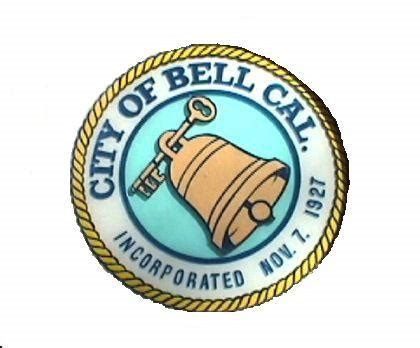by Chris Bailey
20 July 2021, Camarillo, Ventura County
54950.0 “In enacting this chapter, the Legislature finds and declares that the public commissions, boards and councils and the other public agencies in this State exist to aid in the conduct of the people’s business. It is the intent of the law that their actions be taken openly and that their deliberations be conducted openly.”
“The people of this State do not yield their sovereignty to the agencies which serve them. The people, in delegating authority, do not give their public servants the right to decide what is good for the people to know and what is not good for them to know. The people insist on remaining informed so that they may retain control over the instruments they have created.”(Added by Stats. 1953, Ch. 1588.)


The bedrock of the statute is the language above, that all other statutes associated with the Brown Act flow from. When in doubt, do the public business in public. If you attended a public hearing, don’t play the drinking game with the term Brown Act, as you may need an Uber home.
In most cases, issues with the Brown Act aren’t so much about criminality, but function as to matters of disclosure to the public. Correction can be as simple as stopping the process which is at odds with the disclosure requirements of the Brown Act, and other violations may need a great deal of process to be redone to bring the public record into compliance. Of course, the worst famous example of a gross disregard for the public good was the leadership team in the City of Bell, CA which resulted in prison time for their malfeasance. 

How do councilmembers navigate the landmine field of life known as their constituent base? It seems like everything a councilmember does could be a violation of the Brown Act. There are six explicit exclusions to compliance with the Brown Act, and they make logical sense. They are individual contacts, seminar and conference exception, community meeting exception, other legislative body exception, social or ceremonial occasion exception, and the standing committee exception.
Individual contacts between councilmembers and others are exempt from public notice and public hearing, as long as the contacts don’t fall within the appearance of serial meetings, which are violations of the Brown Act.
Let’s go over what a serial meeting is, in a worst case scenario.
In this example, two councilmembers discuss, outside of a public meeting, a matter that will come before the city. They are comfortable as they are not at risk of a quorum, avoiding any issues regarding the Brown Act, because they do not have a quorum. Should one of these two council members then discuss the same matter that will come before the city, there is a risk of a Brown Act issue. A quorum of a 5 councilmember city council has now discussed public matters outside of a publicly noticed and open meeting. This is the clearest hypothetical example of how a city council member can violate the Brown Act, intentionally or not. The likelihood of a councilmember committing this violation intentionally is slim, because it is a clear violation. Councils get into Brown Act issue territory when staff members, constituents who have relationships with multiple council members, or donors who have a vested interest in a matter before a city act as liaisons between councilmembers, under the belief the Brown Act isn’t invoked because the communication is through a third party. Cities have managed this problem with strong training concerning staff personnel, to avoid sharing any opinion about a city matter that was shared with staff by a council member. Briefings by staff are about the dynamics of the city matter, not the questions and comments made by a council member during a briefing.
Well intentioned constituents can put council members at risk by offering information and opinion on a matter before a city that came from another councilmember. Serial meetings are a string of conversations which can lead to a connection which is a Brown Act issue. In the morass of problems that can arise from these interactions, the simple way for councilmembers to avoid Brown Act issues is to discuss matters before the city in public, with proper notice to the public of the meeting.
Attendance by a majority of council members at a seminar or conference or similar educational gathering is also generally exempt from Brown Act requirements. This exception, the seminar and conference exception, would apply to attendance at a California League of Cities seminar. Issues of general interest to the public or to cities must be the focus, and the public must have access for the event to qualify as an exception under the Brown Act. Private meetings, or discussions of city matters outside the view of the public are not allowed.
The community meeting exception allows councilmembers to attend neighborhood meetings, town hall forums, chamber of commerce lunches or other community meetings sponsored by an organization other than the city at which issues of local interest are discussed
The community meeting must be “open and publicized” in the same manner as any other public meeting held by the city. Acceptable publication is the posting of the community meeting on a billboard used for such postings at city hall, publication on the city official website, and publication in a periodical which is generally accepted as available to the public, such as a daily or weekly paper. A majority, quorum of councilmembers cannot discuss among themselves items of city business, except as part of a community meeting program.
A majority of councilmembers may attend meetings of other legislative bodies of the city or of another jurisdiction (County, State, Federal or even another city) without concern such attendance requires Brown Act compliance, as long as the councilmembers refrain from discussing city business among themselves except as part of the scheduled public meeting to adhere to the other legislative body exception.
Brown Act requirements do not apply to attendance by a majority of councilmembers at a purely social or ceremonial occasion, and defines the social or ceremonial occasion exception provided that a majority of councilmembers do not discuss among themselves matters of public business. A great example of this is the dedication of a new library, or road, or public transportation hub.
The standing committee exception allows members of a legislative body, who are not members of a standing committee of that body, to attend an open and noticed meeting of the standing committee without turning the gathering into a meeting of the full legislative body itself. The exception is only applicable if the attendance of the members of the legislative body who are not standing committee members would create a gathering of a majority of the legislative body; if not, then there is no “meeting.” If their attendance does establish a quorum of the parent legislative body, the members of the legislative body who are not members of the standing committee may only attend as “observers” (Section 54952.2(c)(6)). This means that members of the legislative body who are not members of the standing committee should not speak at the meeting, sit in their usual seat on the dais or otherwise participate in the standing committee’s meeting.
In essence, a member of the audience, an observer, a constituent, a citizen. Just STAY OFF THAT DAIS!!
Next time… What do you mean the city council is having a closed session??? I thought that was against the law!?!
It’s all about the Brown Act.
Chris Bailey is a reporter-at-large of citizensjournal.us, a business owner, military veteran and long time resident of Camarillo
Get Citizensjournal.us Headlines free SUBSCRIPTION. Keep us publishing – DONATE



